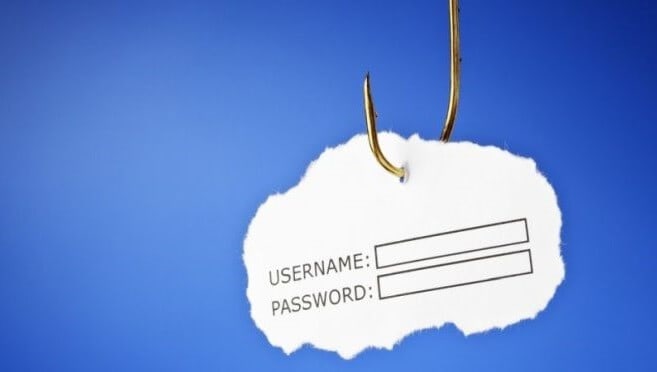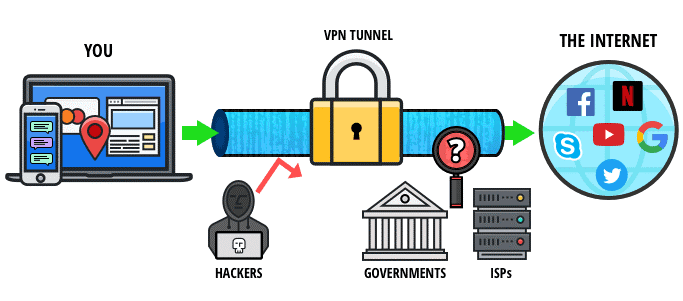Are you familiar with the potential risks of internet usage? This Internet safety guide will help you in knowing why the Internet isn’t as safe as you think.
In this age of E-commerce, streaming services, and social media sites, it’s become nearly impossible to imagine a life without the Internet. In fact, chances are that you are already spending several hours on it every day sharing photos and videos with your friends, watching your favorite Netflix shows, listening to music, etc.
However, are you aware of the various risks that the Internet exposes you to?
The Dark Side of the Internet
One of the most basic things that a computer user is taught is the importance of firewall and antivirus programs. However, these programs can’t provide 100% protection against online threats which is why more advanced solutions like password managers and VPN services are recommended for the protection of your privacy and digital data.

In fact, VPN can also be used to access geo-restricted content (like Netflix libraries, BBC Radio, etc.) or get lower prices on video games and other digital products. However, the question remains, what kind of safety issues actually exist on the Internet in the first place? Let’s get into it.
Public WiFi and Hotspots
Although the Internet connection you use at home isn’t completely safe at all times, it’s at least within your control for the most part. You can look out for anomalies through the list of devices connected to the network and the data that’s received and sent. However, when you connect to public networks like in cafes, train stations, etc. then the risk quite high.
In fact, Mathy Vanhoef, who is a security expert at Belgian university KU Leuven, identified a vulnerability in the wireless security protocol WPA2 itself which raises big questions on the safety of wi-fi networks you use in the public.
The reason why a public Internet connection is unsafe is that you can’t control its security. Since the network can be accessed by anyone, a hacker who is sitting in the same room that you are in can bypass the security measures to access your smartphone or laptop and steal your personal data.
What’s more, you may lose thousands of dollars if you decide to login into your online bank account during the security breach.
Phishing Attacks
if one were to make a comprehensive list of all the safety measures to take when using the Internet, then steering clear of embedded links in phishing emails would certainly in it. But what is a phishing email anyway?
Phishing emails are well-crafted emails that are made to mimic genuine emails from banks, government departments, etc. However, they are sent from fake email addresses that belong to cybercriminals.

The idea is to trick into believing that a trustworthy entity has contacted you and ask you are to share confidential details which are collected by hackers.
Here is a typical example of a phishing attack: you receive an email which looks like it’s sent by your bank. It warns you that your bank account might be breached and you should change your account password immediately to protect it from authorized access.
In reality, the link in the email takes you to a fake website that looks identical to your bank’s official website. When you enter your login details into this website, then they are sent to the hackers behind the attack. They can then use the credentials to access your bank account and transfer the funds to their own bank account.
To avoid becoming a victim of a phishing attack, it’s important that you check the authenticity of the emails that you receive. Don’t click on any suspicious links unless you are sure that it’s from a genuine person.
Privacy Breaching
As if cybercriminals aren’t enough, there are reputed and well-recognized websites and apps that are actually stealing your private information without you even knowing. The biggest tech company Google itself is known to be collecting the details of your online searches, browsing history, etc. when you use Google Search or the web browser Chrome. There are all kinds of security inconsistencies too.
For instance, the company admitted to tracking user location even when the setting was turned off! Can you imagine someone snooping on all your online activities without your consent?
Unfortunately, that’s exactly what the majority of popular websites are doing today.
The reason why so many websites collect your private data is to sell it to third-party companies which use it for their marketing and branding strategies.
When a company has organized data about the users that are searching for particular keywords that pertain to their business, then they can directly approach these users to increase sales rather than targeting a wider market which comprises of many users that aren’t interested in their products. However, that doesn’t really justify the stealing of private information in any way.
Internet Safety: The Solution
There are several things that you can do to protect yourself from online frauds and privacy breaches. Here are some of the most important steps you can take to be safe online:

- Installing a comprehensive antivirus program on all your devices like smartphones, desktops, laptops, etc.
- Investing in a quality VPN service that offers multiple accounts and good customer service.
- Educating yourself about the various online frauds and risks by subscribing to security blogs and news websites.
- Updating your software and OS up to date at all times.
Bottom Line
The Internet offers a slew of platforms for social networking, entertainment, knowledge, and launching new businesses. However, you have to be careful with the websites you visit and the data you share. There are all kinds of risks as mentioned above, and you if aren’t careful, then you can become a victim of financial fraud or compromise with your personal data. So, enjoy the online services but never let your guard down.